MPO and Columbia University professor visit Casa Brasil IBGE and discuss partnerships
June 05, 2024 06h54 PM | Last Updated: June 10, 2024 11h17 AM
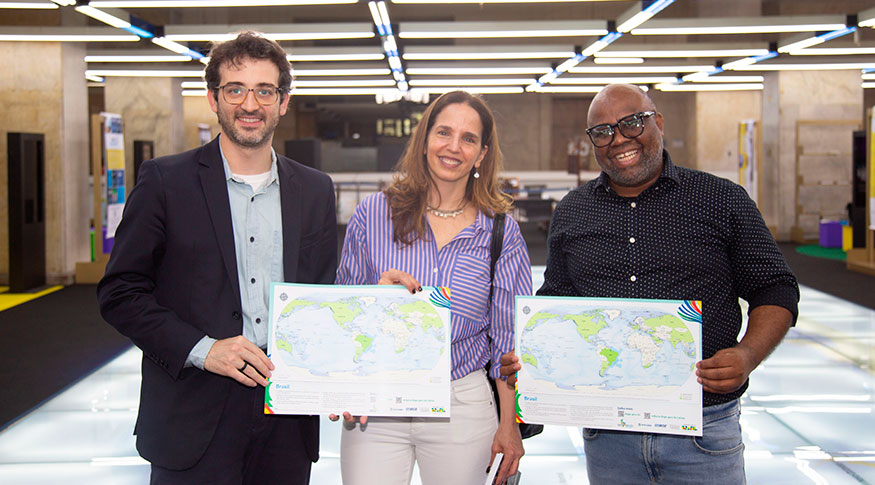
The Secretary of Institutional Articulation of the Ministry of Planning and Budget (MPO), João Villaverde, and the head of the Office of Social Participation and Diversity, Anderson Quack, accompanied by Luisa Palacios, assistant professor at the School of International Relations and Public Studies of the Columbia University, visited Casa Brasil IBGE, the Institute's memory and technology space, recently inaugurated during the celebration of the IBGE 88th anniversary, at Palácio da Fazenda, a historic building located in downtown Rio de Janeiro.
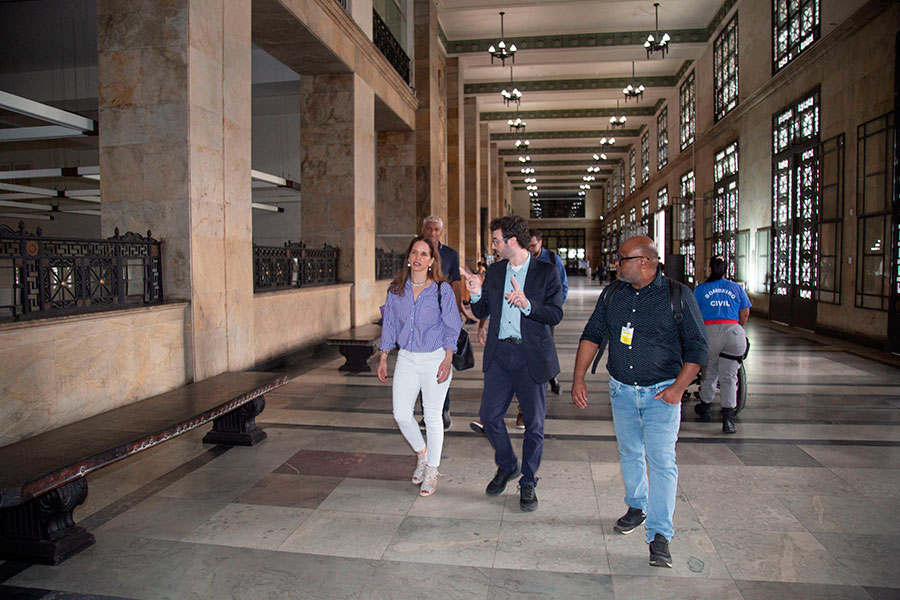
Palacios, Villaverde and Quack at Palácio da Fazenda in downtown Rio de Janeiro - Picture: Marcio Costa/ IBGE News Agency
João Villaverde emphasized that “the IBGE is a Brazilian jewel and when you have a jewel in a place as special as the Ministry of Finance's original space here in Rio de Janeiro, you have the unification of the two best worlds: the world of the IBGE's information, which makes us smarter, and the world of museums, the world of history, which tells us how we were before we became who we are today”.
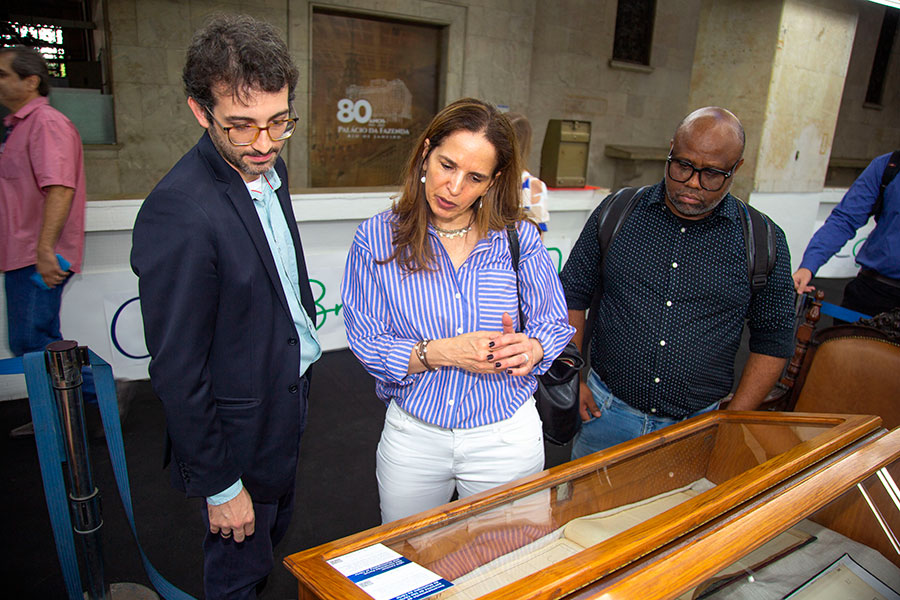
The MPO representatives and the professor observe a copy of the first Census carried out in Brazil, in 1872 - Picture: Marcio Costa/ IBGE News Agency
The representative of the Ministry of Planning and Budget also explained the importance of dialoguing with the academic community. "Just as important as making public policy is communicating that we are making it. Meeting personalities like Professor Luísa Palacios is fundamental to the work of any public manager. We cannot remain fortified without dialoguing with the creative minds available in society. Talking to professors, researchers and science professionals is essential in the interaction that only good public policy allows”, explained Villaverde.
In agreement with Villaverde, Anderson Quack highlighted the work of the Institute and the efforts to build the Casa IBGE. "It's extremely important to have Brazil's data. And we have the IBGE as the main provider for collecting data on Brazilians so that civil society can have access and managers can implement public policies for the population. Casa IBGE is essential for all Brazilians who live in Rio de Janeiro or come to visit the city", said Quack.
The head of the Office for Social Participation and Diversity also mentioned the objectives of the meeting with Columbia University. “We are engaged in a set of actions that we have been developing at the Ministry, the South American integration routes, integrating Brazil from north to south, transporting all our production across the Pacific Ocean to Asia. In this way, we shorten the journey and generate cost savings for this production, making Brazil even more economically viable and developed, growing together with our neighboring countries”.
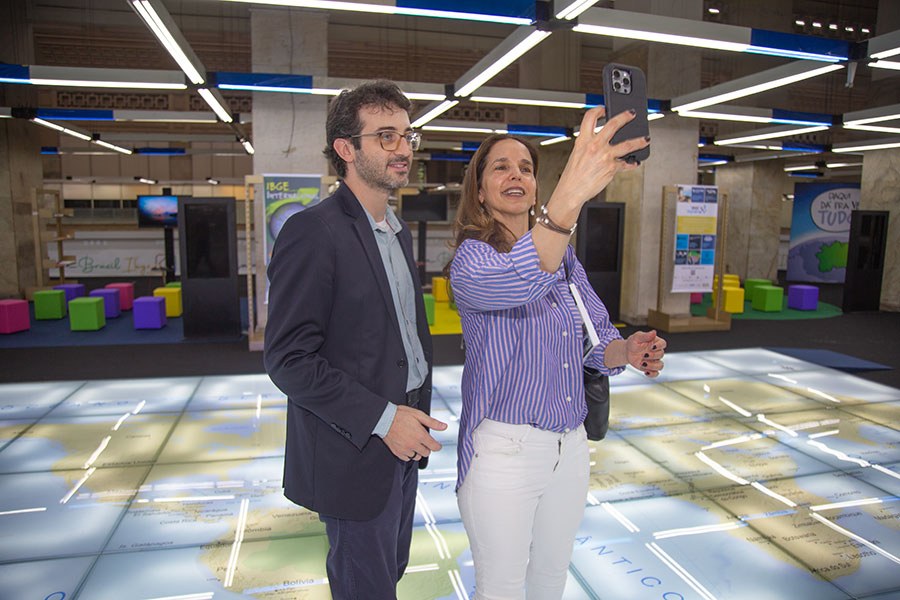
Villaverde and Palacios on a map with Brazil in the center of the projection, at Casa Brasil IBGE in Rio de Janeiro - Picture: Marcio Costa/ IBGE News Agency
Luisa Palacios highlighted the IBGE's work in producing data for public managers. “One of the most important things for governments is to have large institutions to carry out public policies and, for this to be possible, it is necessary to have major statistical centers. It is crucial for anyone to understand and have confidence in the data and understand the situation it presents, the effectiveness of these policies depends on trusting the data”, added the professor of the Columbia University, located in New York, in the United States.
Palacios also works at the Center for Global Energy Policy and explained the reason for her visit to Brazil. "I'm here because the university has a study center in Brazil, here in Rio de Janeiro. We're doing an exchange at an event on global energy policy and we're analyzing Brazil's trends in this area. One of the things I do as a researcher is that I study developing countries, like Brazil. The contact with the Ministry of Planning and Budget is to understand the policies of the Brazilian government and to communicate with other countries”, explained the university professor.
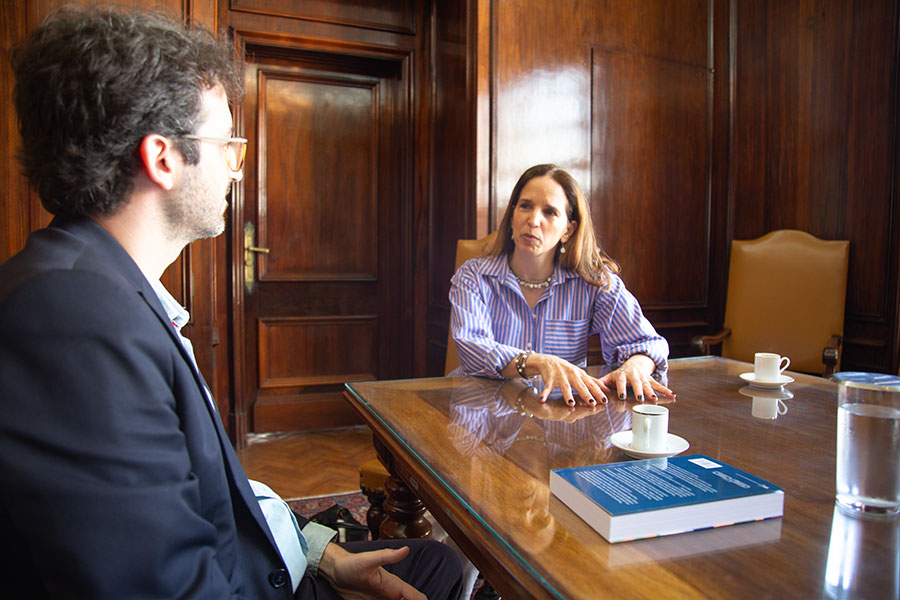
Villaverde and Palacios at a meeting at Palácio da Fazenda in Rio de Janeiro - Picture: Marcio Costa/ IBGE News Agency
Casa Brasil IBGE
Casa Brasil IBGE is a hall of memory and technology, bringing together in the same environment the different areas of the Institute and its activities, so that visitors can visualize both the IBGE's almost 90-year history and the Institute's paths and prospects for the coming decades.
Initially, with a physical version at Palácio da Fazenda, the aim is to reproduce in each State Superintendency a part of the Casa, which will show the external public the different actions of the Institute divided into nine macro areas: Library, Knowledge, Geosciences, Census, Surveys and Indicators, Digital, Memory, International and Regional.
The Casa Brasil IBGE at Palácio da Fazenda, in Rio de Janeiro, has exhibitions of historical equipment for producing maps and census questionnaires, samples of specimens from the Roncador Reserve, in the Federal District, and the IBGE Herbarium RADAMBRASIL, located in the Botanical Garden of the city of Salvador (BA).

Service
Casa Brasil IBGE is free of charge to visit and is open from Monday to Friday, from 10am to 4pm, on the first floor of the Palácio da Fazenda, located at Av. Presidente Antônio Carlos, 375 - Centro (RJ). The bookshop is open in the building's basement from 9am to 4pm.
For school visits, with groups of students and professors, previous registration is required and booking must be made by filling in the form available on the Casa Brasil IBGE website.




















